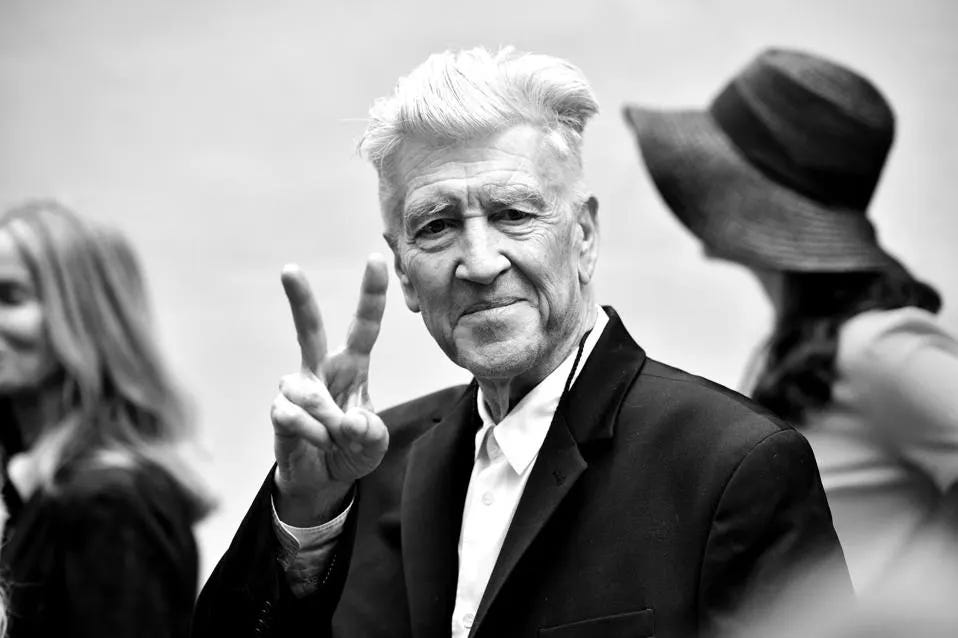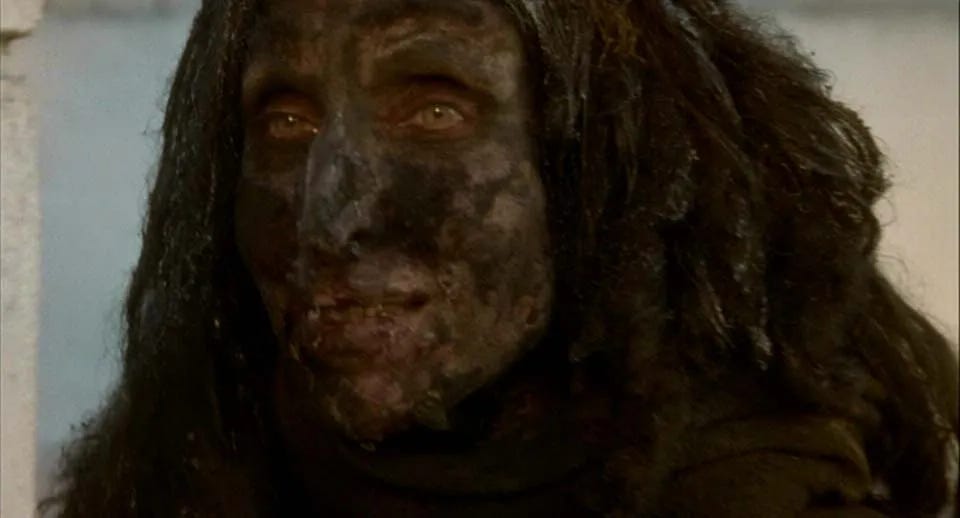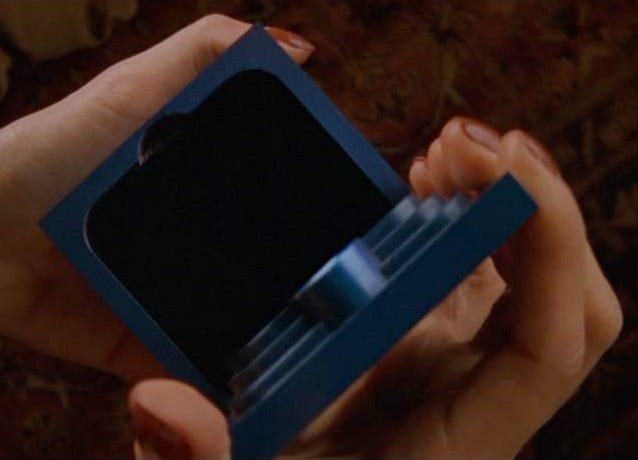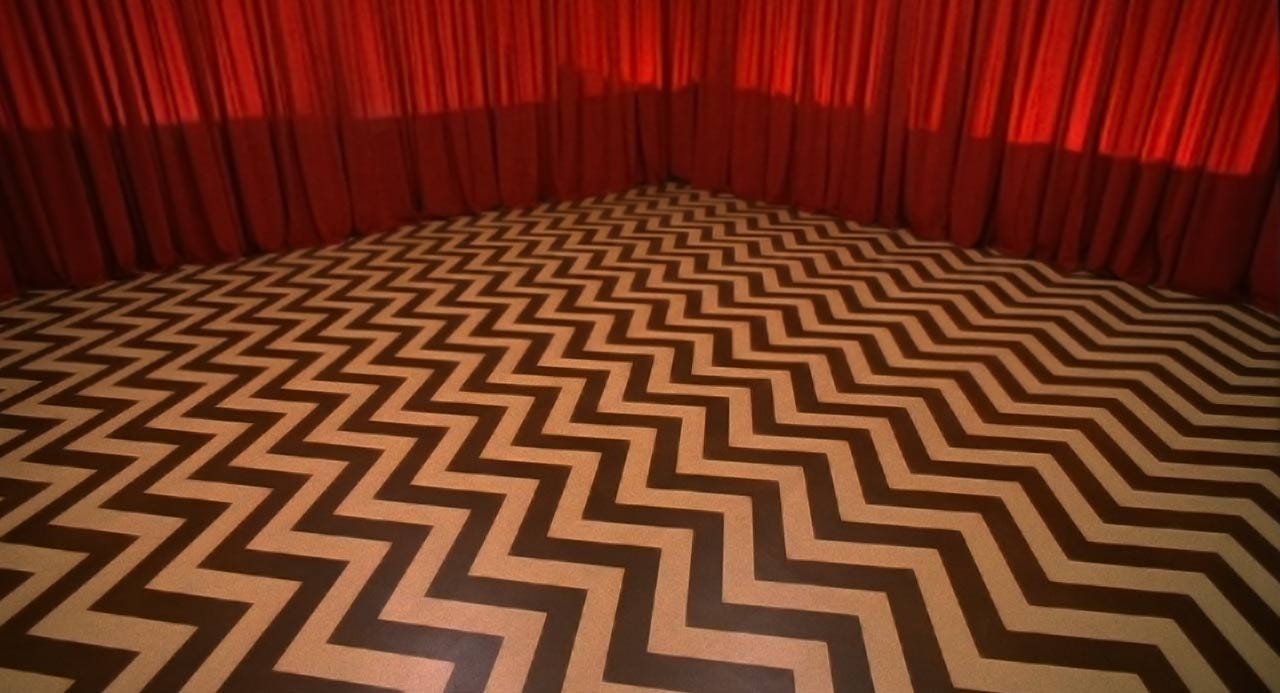Thank You David Lynch
A personal reflection on the impact of the director on my creative and spiritual life amid the search for meaning in what goes missing in plain sight
Mulholland Drive dropped in America on October 12, 2001, a month and a day after two planes flew into the World Trade Center, forever changing the face of the world. I was 22 that year, still an undergrad trying to figure out what I wanted to do with my life. I’d been getting into film a bit after taking a class comparing the careers of Orson Welles and Stanley Kubrick, two revolutionaries who had somehow managed to attain major fame while making work that bowed to absolutely no one. I didn’t understand yet quite what that meant; why it should be so difficult for an artist who’d had critical successes to continue doing what they want. Even my film professor didn’t like Lynch because there was nothing to it. “I’m not convinced those are even films,” he told the class, beaming like he’d really made his mark.
How couldn’t they be films, though? I remember wondering, both irked by his flippancy about a director I found interesting—I’d recently binge-watched all of Twin Peaks in a marathon, followed rapidly by Blue Velvet and Eraserhead, rented from the then VHS-only ATL rental video shop, Videodrome—and confused as to what exactly made this clearly well-versed academic turn up his nose so dismissively. I didn’t really have the words yet to explain what I even liked about Lynch besides his willingness to juxtapose images and ideas onscreen that I’d never seen anywhere else: the Little Man from Another Place speaking backwards in a red-curtained room with zig-zag floor patterns; Dennis Hopper huffing gas out of a mask and crying for mommy; and of course, the alien baby wailing as it explodes into a pile of mush after being stabbed with a pair of scissors by its fearful father.
I understood the stories in those films didn’t make much literal sense, at least from a realistic story-telling perspective, but even at 22 I knew that wasn’t the point. I thought maybe the point was being exposed to feelings you didn’t know you could have, not simply for shock value—Jackass: The Movie would crush the box office for $80 mil the following year—but because somehow once they got inside your head they rewired the way you thought about the limits of reality. There seemed to be a whole lot more going on in Lynch’s films than words could describe, in a way that made the real world I was living in seem less definitive; like there was something more to be found to life hidden in plain sight, which could be explored by indulging it, listening back where others refused.
I saw Mulholland Drive twice that fall after the planes hit—once by myself, and a second time with two Satanist friends from my neighborhood, both huge Lynch fans. Randy was a trenchcoat goth who considered himself a Lynch expert and laughed in my face when I told him I would have never expected the opening scene of Mulholland Drive to look like it did: a purple-toned greenscreen covered with jitterbugging dancers whorling chaotically to swing music, until with an ethereal chord, the over-lighted, semi-translucent image of Naomi Watts and two grandparent-age people loom into frame, beaming for the camera like she’s won an award. “OK, yeah, I didn’t expect that,” Randy admitted later, with a smirk like the most Lynchian thing about it was that even the unexpected could not be expected. Lynch’s movies didn’t seem to have a rubric to them, despite their consistency as simultaneously camp and uncanny, absurdist and sleek.
More than the introduction, though, what I remember about seeing Mulholland Drive in the theater was how mad Randy got when the audience laughed. Having seen the film first by myself at a matinee, I was surprised when instances that hadn’t seemed humorous were suddenly laugh tracked, not because they were overtly funny, clearly, but because the people watching had no idea what to make of them, which made them unsure how else to react. By the time the since iconic lesbian sex scene between Watts and Haring came up, the row of bros behind us were hooting and whooping, not from being turned on but maybe secretly scorned by the high drama of Angelo Badalamenti’s score, the awkward topless kissing, and half-audible moans of love in an oddly lit night.
Finally irritated beyond measure, Randy, normally mild-mannered and, stood up with his eyes bulging out of his head and pointed both gloved hands at the entire audience, so furious he seemed ready to explode. Lynch was sacred to him, one of the rare sources of transcendent meaning in a warehouse full of glossy totems. I remember being as surprised by his ferocity as I was by anything onscreen, and likewise surprised when his actually reacting to the banality of the bros’ bemusement shut them up. The rest of the screening took place in silence, renewed in focus once we’d gotten past the need for trolling—a funny way to downgrade idle cynicism with a respect for the strange.
Looking back over the entirety of Lynch’s career, there’s a vital lesson to be learned from exactly this cross-section of the fine line between weird for weird’s sake and the spiritual mystery of human life. It’s easy to look at almost any excerpt from his filmography and come away assuming that the only reason anyone would put anything so unforeseen on the screen is to cause shock; especially now, people seem more willing than ever to attribute ingenuity to the desire to gather eyes, and therefore cash. Throughout his career, however, Lynch made a point to vocally refuse any outward influence on his work in exchange for an easier path, so much so that he’d struggle to find funding despite his eventual diehard fanbase and nearly 50 nominations for industry awards.
Across his ten feature films and three seasons of TV, spanning five decades from 1977’s self-produced Eraserhead to 2017’s Twin Peaks: The Return, he’d only work with the same distributor once, including his early attempt at adapting Dune, from which he’d remove his name when he was forced to relinquish control of final cut. Even Mulholland Drive, arguably his biggest hit, including Oscar nominations for Best Director and Best Screenplay, was the result of a rejected TV pilot that Lynch refused to recut, resorting instead to recrafting it as a feature film that rather baldly takes to task the rampant corruption of not only the film industry, but the endlessly disturbed state of the contemporary mind.
Such unwillingness to kowtow to industry standards, especially by someone with such technical ingenuity and a knack for imagery so uncanny it became instantly unforgettable, made a huge impression on me as a young person with ambitions of my own to break the mold. Whereas other maverick artists, especially Americans, would eventually parlay their early fame into a more sustainable practice, Lynch seemed to only grow more incessantly himself. What good was spending your life to make something that anybody else could also make, given the chance? What did it mean to find success and refuse to build a brand out of it, but rather to reinvest that power back in its origin point—the artist’s soul? Even more so, why did seeing things onscreen that emerged from the life of the unconscious rather than communal commercial reality make people so incapable of processing it, refusing to consider the metaphoric and otherworldly aspects of human experience simply because it didn’t have an immediate interpretation to enact? Wasn’t the whole point of art, at least in part, to explore what we don’t know by way of what we think we do—perhaps even to create new aspects of ideation itself as out of thin air, rather than endlessly recycling takes and bon mots in hopes of getting money and being liked?
As a kid raised in the suburbs, I felt I understood the touches of evil that lay hidden just underneath the status quo; a sort of world behind a curtain that we weren’t supposed to acknowledge for fear of making it larger or becoming mired in its grip. Lynch laid into this gray area like no one else, not as a cop or a prophet, but simply someone aware of the unspeakability of certain moods, abstract truths locked up in heavily mediated languages, notions of emotional architecture that overlaid the bare bones of what meets the eye. Where would we ever find progress if we refused to consider the darkness that provided the contrast for the light?
Lynch, of course, refused to respond to the many such questions and concerns that his films drug out onto the screen without apology. Rather than an overtly political entity, he respected his own process enough to know that to try to place a more immediate meaning to his films’ experiences would be to destroy them—not because they were void of revelation, but exactly the opposite: because they went to places that otherwise would refuse to be filmed. He did all this, too, with a sense of humor that lifted up the guttural intrigue we often feel for the profane and made it into something more multi-sided, not just a black hole but a potential doorway to understanding what lies beyond the edges of the narratively sane. It felt like a great relief to be able to sit with the leering grill of Bob and Frank Booth and Bobby Peru in my brain without a net; to look into the eyes of Laura Palmer and Dorothy Valens and Lula Pace Fortune and find true horror there that I had to reckon with in order to parse the many shifting storylines his film’s facades could so intuitively and so unsettlingly reveal. His work made the world, indeed the universe, feel so much larger, so much more special, even as it rammed our heads into the screen, threatening to infect our own mortality with the same uncanny curiosity that so often ended with knowing less.
Rather than seeking better answers, then, as a burgeoning artist myself, I began looking for my own ways into the liminal nature of the universe I shared in spirit with his search. I’ve never been one to want permission for exploring my own spiritual curiosity—a thirst left unsated by the church, much less in the platitudes and tidy packages offered by artworks less willing to wander out onto the ledge in the cold—but allowing myself to be immersed Lynch’s continued deep dives into the intersection between psyche and reality, obscurity and visibility, desire and death, awakened my mind in a way that no other American artist ever had. He made me want to tear up what I felt I knew by way of routine and exterior surface and delve into aspects of existence that otherwise went missing, thereby depriving the unreflective public mind of its own essential magnificence as it continued to become more and more deeply buried in the refuse of consumerism, the intolerance of Other.
I could go on endlessly here unpacking the finer loopholes and lambent open ends of Lynch’s films until I’m blue in the face; the slews of iconic imagery and abstract concepts that cling to the mind without a means for proper synthesis in revelation despite their obvious gravity—and that’s the good news. As much as I’d always wished for another film following Inland Empire, his final feature and perhaps my favorite of all time, the miracle of having such an extensive and expansive body of work left in the wake of his death is that there will always be new films within his films. No matter how many times I’ve seen them, every time I return to watch again I see new things, find new connections within his universe that sometimes open directly into ours. His ambition to tell stories and create images that could and would exist nowhere else continues to inform the necessity of the imagination as a part of the real world, without which we’d be living in a hell, without a voice but what’s already written on the cave walls. As much as I mourn the loss of an icon who gave so much direction to my life, I feel endowed with his spirit in a way that remakes the abstract nature of loss into an aperture through which the unwritten meaning of life comes rushing in, often so fast and so madly you might miss it if you’ve still got your head up your ass looking for gold, or for God.
Here we are.










“Wasn’t the whole point of art, at least in part, to explore what we don’t know by way of what we think we do—perhaps even to create new aspects of ideation itself as out of thin air, rather than endlessly recycling takes and bon mots in hopes of getting money and being liked?” Loved this and the whole piece.
"No matter how many times I’ve seen them, every time I return to watch again I see new things, find new connections within his universe that sometimes open directly into ours." Beautiful. Thank you.